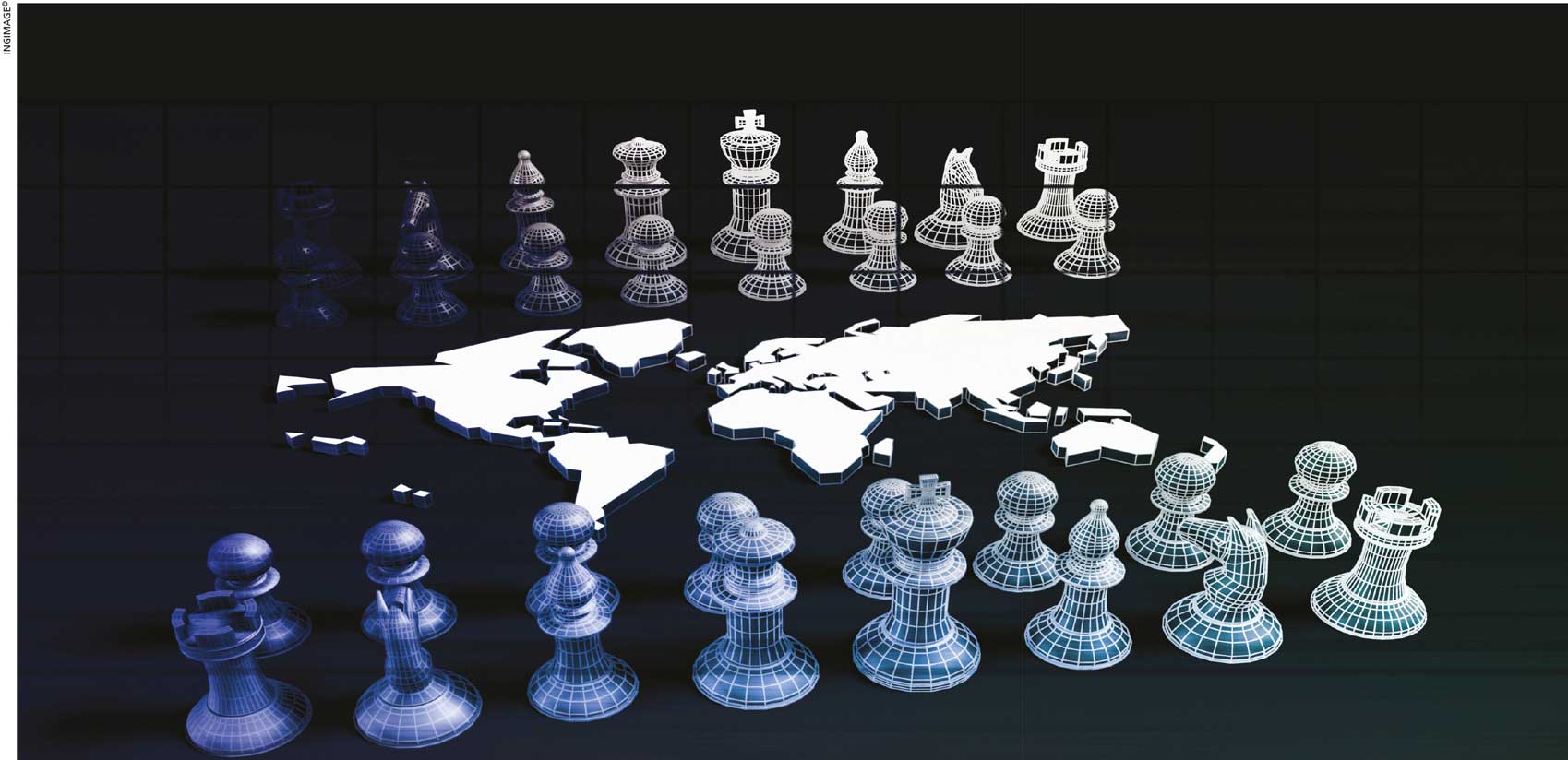STATE OF THE NATION
MAKING ‘HEAVY WEATHER’ OF GEOPOLITICS?
Wijith DeChickera wonders whether the torrential downpour of the last month is but a harbinger of an avalanche of woes for a once sunny isle

Aquatrain in Dhammapada characterises our blessed isle’s welfare as being conditional. So when a brace of these crumble, perhaps earthslips in the natural realm and landslides in man-made laws ensue.
One dominant idea encapsulates the ideal devo vassatu kalena (‘may it rain in time’): an inclement climate is essential for equanimity.
Untimely rains recently brought deluges of death and destruction, repeating lessons that human folly in unsustainable populism driven construction often has dire consequences. The rape of nature through deforestation has ramifications that no human laws could judge or face.
A second notion – sassa sampatu hetuca (‘may the yield be rich’) – suggests bountiful harvests bless well-fed people.
Yet, recent myopic policy decisions have uprooted agricultural production and threaten to condemn our erstwhile ‘Granary of the East’ to modern-day beggary by stemming circulation to farmers’ lifeblood: fertiliser.
Irony is there’s a glut of rain but crops might fail… famine follows – according to one estimate, monthly food inflation recently skyrocketed by almost 65 per cent and is heading into the 750 per cent annual stratosphere…
Forgo debating whether it’s appropriate to transform overnight from chemical to organic fertiliser regimens…
Forget heavy-handed policy implementation, threatening the military would compel farmers to work abandoned paddy fields at gunpoint; shortsightedness, forestalling a US$ 1.3 billion industry (tea) to foreshore 300 million forex dollars…
Because overbearing regional powers and neo-empires farther afield undermine not only economic aspects of our policy decisions but also sociopolitical dimensions in the government fulfilling its age-old social contracts; and now the emerging element of globalism whereby politics and socioeconomics are subsumed by geopolitics…
India’s interest in supplying (aboard military aircraft) nano-nitrogen – properly, nano-urea: a poorly received substitute for chemical fertiliser, which our farmers are accustomed to – smacks of Big Brother’s longstanding instrumentality in its tiny neighbour’s national welfare.
Coming ahead of provincial council elections, it reeks of unsubtly manipulating Sri Lanka’s hoary aversion to devolution of power to its minorities.
Commercial disagreements between a Chinese company supplying organic fertiliser to our country (hardly starved for manure before recent political machinations!) has also taken on geopolitical dimensions.
By dint of China’s track record in other developing nations that are in dire straits, undermining Sri Lanka’s National Quarantine Protection Service (NQPS) in favour of a third party ruling on an allegedly substandard product – in fact, detrimental to our biosphere – resonates with nationalistic thinking that state authorities mandated by law should reign supreme over international intervention.
Blacklisting a state bank in the faux-fertiliser fiasco and suing the NQPS, that company – and by proxy, the People’s Republic under the aegis of the Chinese Communist Party’s state-controlled capitalism – opens Sino-Sri Lankan relations to charges of sovereignty threatening inter-sectionality in bipartisan deals of late… be it political (shared values), military (similar models) and sociocultural (some common sensibilities).
Keeping one’s balance in choppy seas of international manoeuvring in national waters is a challenging task. With ground realities, strategic outposts and military hardware being de rigueur – rather than global conflicts going into cyberspace – Sri Lanka has followed suit with a hefty allocation of Rs. 373 billion for defence spending… against or together with whom, one wonders?
Consolidating its elite forces into a single operational unit – the newly formed and now centralised 1 Corps – must raise eyebrows among military analysts and cause concern to civilians placing love of nation ahead of prevailing geopolitical winds.
Maintaining discipline under the banner of ‘One Country, One Law’ is increasingly cynical, suspect and lamentable.
While sensitive poets critiquing ethno-religious prejudices and outspoken advocates defending constitutionality languish in prison, robed ex-convicts who were subsequently enlarged at the executive pleasure have progressed from presidential pardons to being mandated with recommending streamlined laws through a demographically lopsided task force. Some political animals are more equal than others.
A spate of legal cases in which personalities prominent in the regime were released from prosecution because of a ‘lack of evidence’ begs the question why indictments were served on them in the first instance?
A cynical attitude towards the judiciary is symptomatic of an unhealthy body politic – especially when the luminaries helming the Attorney General’s Department at the time these plaints were filed are now at the apex of the Supreme Court!
Even a jaded worldview cannot attribute such deterioration of juridical integrity to international interference in our sovereignty.
There are some places no genre of geopolitics can go to besmirch the independence of our land and its laws… that’s on us – lock, stock and smoking constitutions going up in flames; while there’s no news of the promised ‘new social contract.’
The state is not evenhanded in its treatment of sundry players in the ongoing ‘4/21’ imbroglio. Sordid speculation skulks about who that spectral ‘real mastermind’ behind the dastardly attacks was, and state intelligence services have made a mockery of justice by choosing to persecute those with a stake in seeing victims’ wounds healed.
Rather than prosecute troublemakers in the regime’s ranks, the authorities have grown cynically fond of running protestors and those agitating for sociopolitical equity to ground. ‘Ruler in the right, nation is alright’ (raja bhavatu dhammiko) – a fourth principle – has been swept away in the floods.



